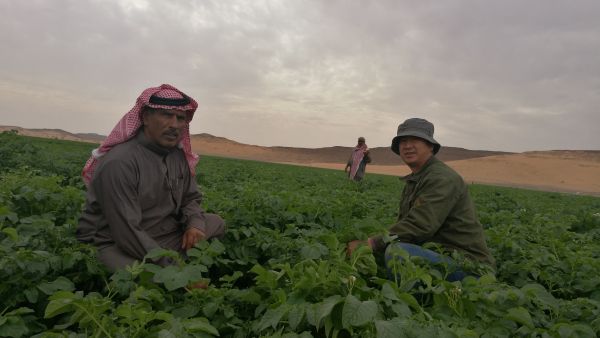
Shi Fuxiang (R) and Khaled Suleiman
Potato guru Shi Fuxiang is preparing for his second trip to Jordan.
Last year, under a technology transfer agreement, Shi was sent by Ningxia Guyuan Tianqi Potato company to Jordan. His trip lasted five months and Shi, in his fifties, believes his knowledge of potato farming to be very helpful to local farmers.
"Arab countries, including Jordan, highly need agricultural technology. Ningxia has offered expertise in irrigation and pesticides," said Zhang Xinjun, deputy director of China-Arab States Technology Transfer Center in Ningxia Hui Autonomous Region.
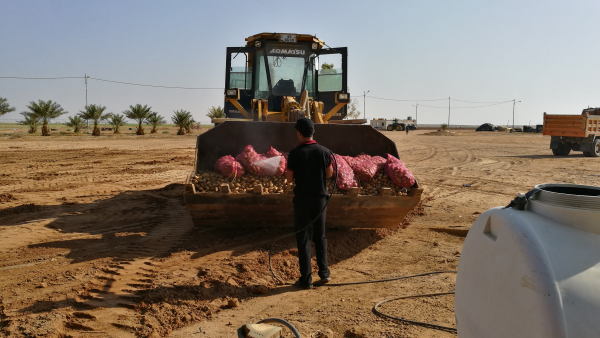
Potato seeds are disinfected.
"The ultimate purpose of this technology transfer is to raise the quality and quantity of farm output in Arab countries. Of course. at the same time, Chinese companies also hope to expand their business," said Zhang. "It is a win-win situation."
During Shi's time in Jordan, he studied local crops and techniques, and devised ways to help local farmers.
"Potato yields at Jordanian farms are rather low, and their techniques are out-of-date," said Shi.
Shi worked on a farm owned by Khaled Suleiman in Maan, about 350 kilometers south of the capital Amman. There are over 800 hectares of land, a large part of which is pasture and the rest used for cultivating fruit, potatoes, onions and other vegetables. The land is saline-alkali, and farmers do not rotate their crops, said Shi.
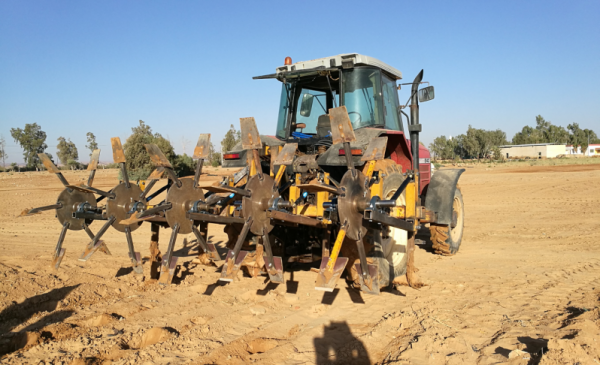
A pit punch purposely made by the Chinese expert for potato farming.
"I taught them crop rotation and showed them better weeding techniques," he said.
Somewhat skeptical, Suleiman set aside just 20 hectares to try out the "new" ideas. Much to his surprise, his output grew by 25 percent.
China is the world's largest potato producer, accounting for 25 percent of global production. Ningxia has 170,000 hectares of potato farms.
"Ningxia has developed seeding and machinery techniques for potato farming, so it is a good time for agricultural companies to be out spreading the word," said Kang Jianbin, acknowledged as one of Ningxia's foremost potato experts.
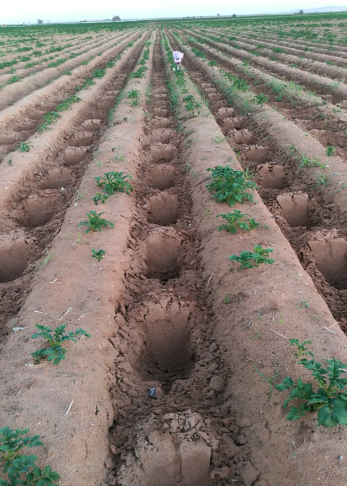
The effect of using the pit punch
Though China grows a lot of potatoes, exports are weak: only 300,000 tonnes in 2013, about three percent of the total world export volume.
Ma Yulong, head of Tianqi Potato, sees a lot of promise in the Middle Eastern market.
"Jordan consumes about 500 tonnes of potatoes a day, much of which comes from France, the Netherlands and Belgium. I think there is a good market for us there," he said.
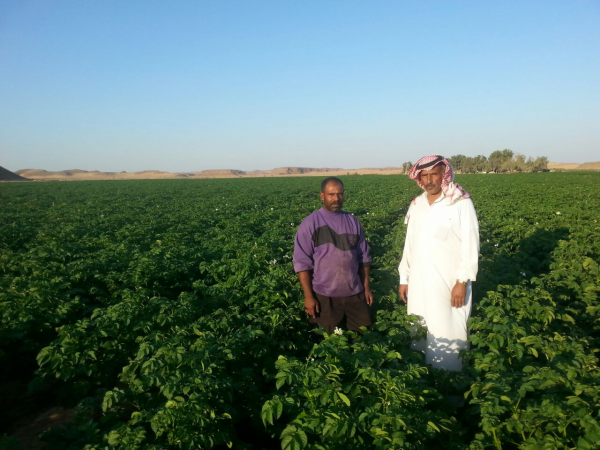
Potato plants that the Chinese expert helps to grow.
The potato season is just around the corner, and Suleiman hopes a second group of Chinese agriculturalists will arrive soon.
"I keep close contact with my Chinese friends. Besides potatoes, I hope they can help me with other crops," he said.

